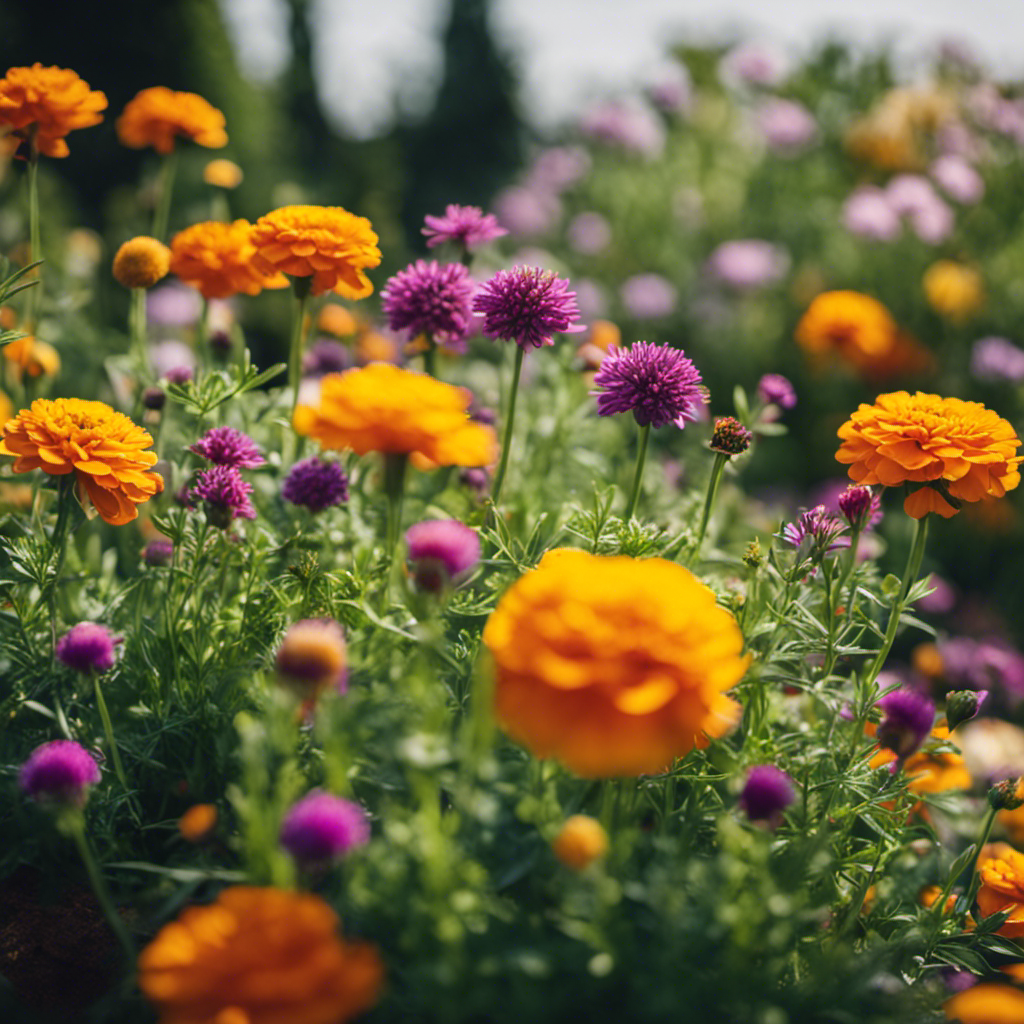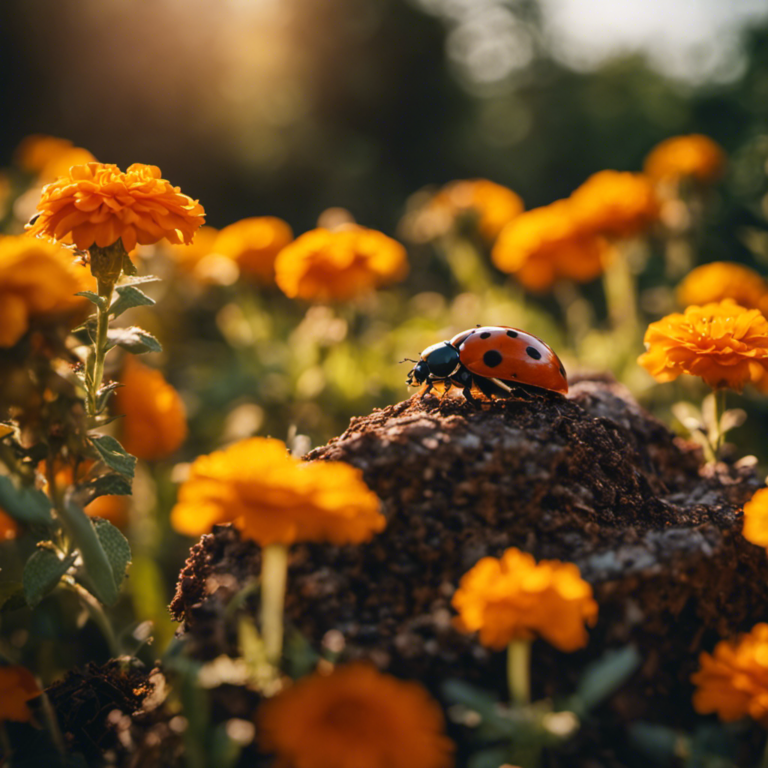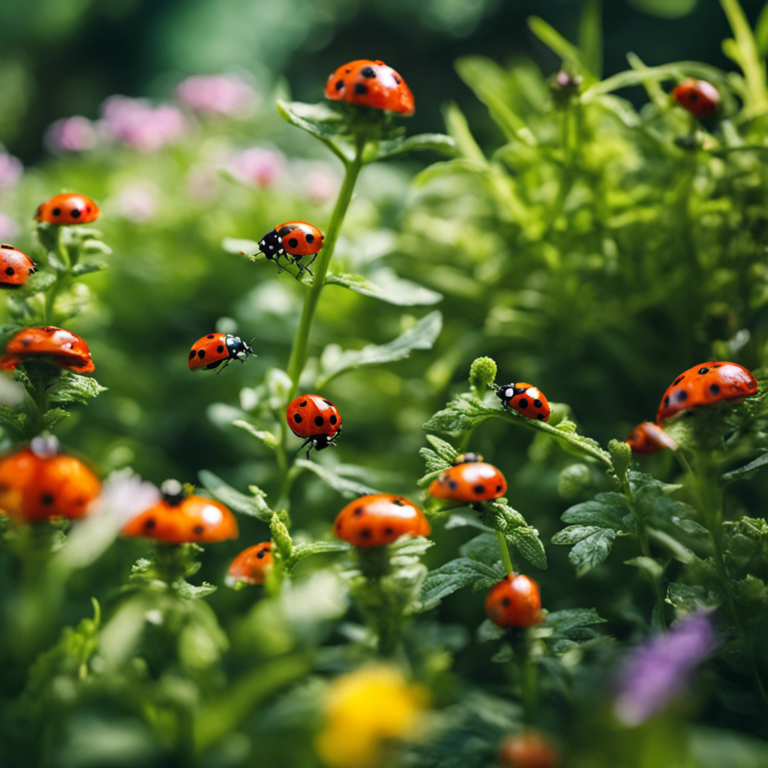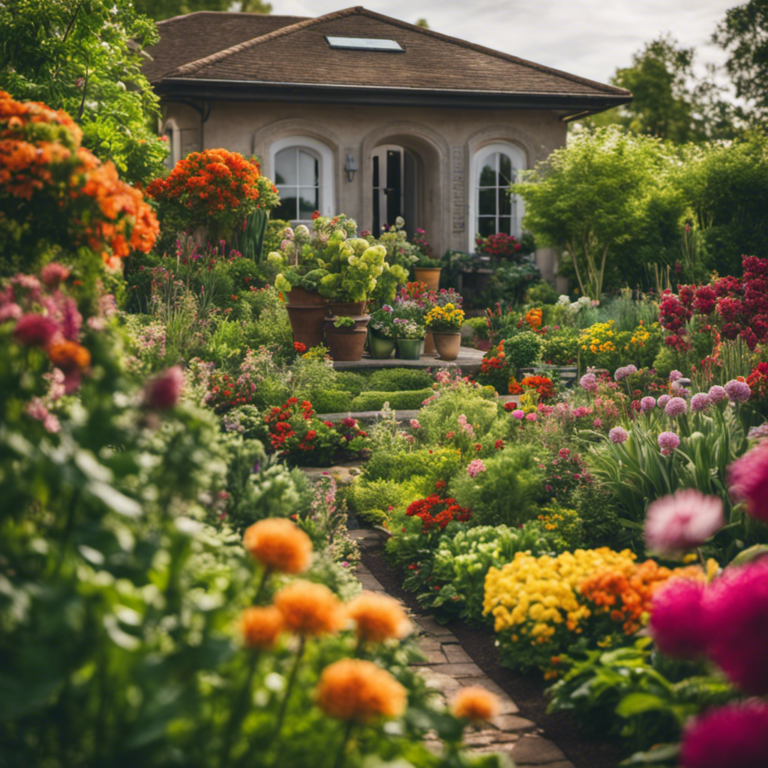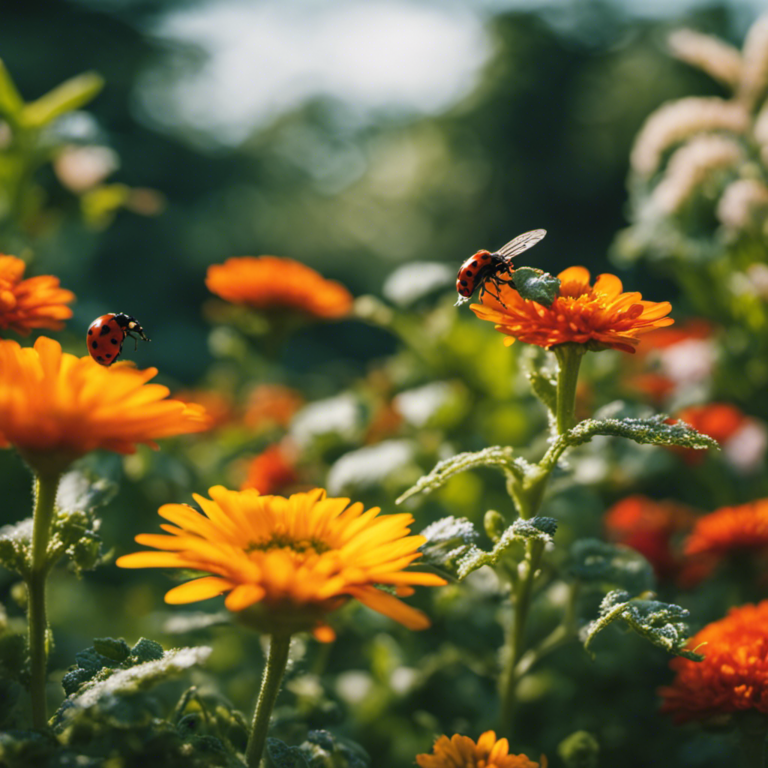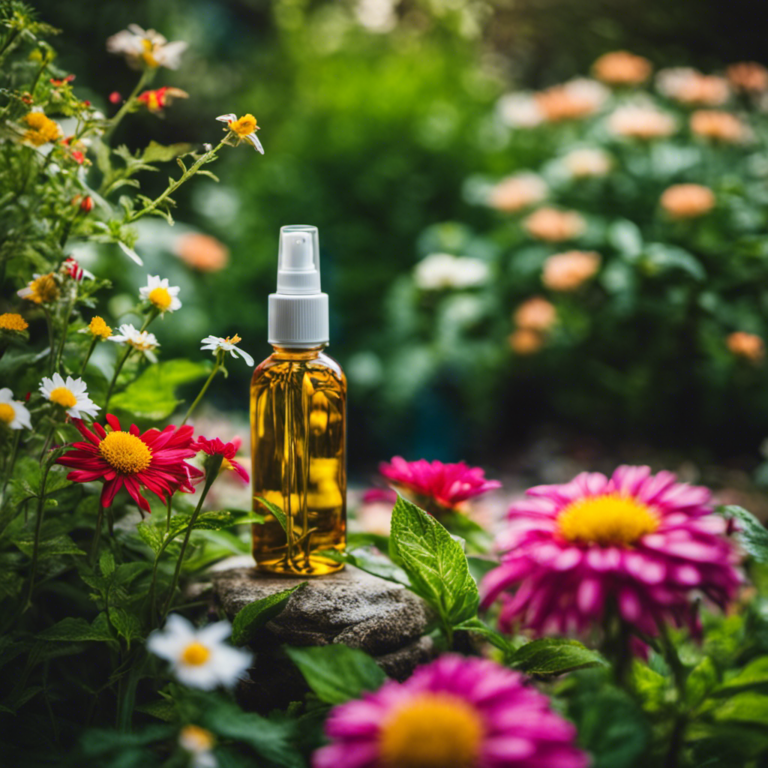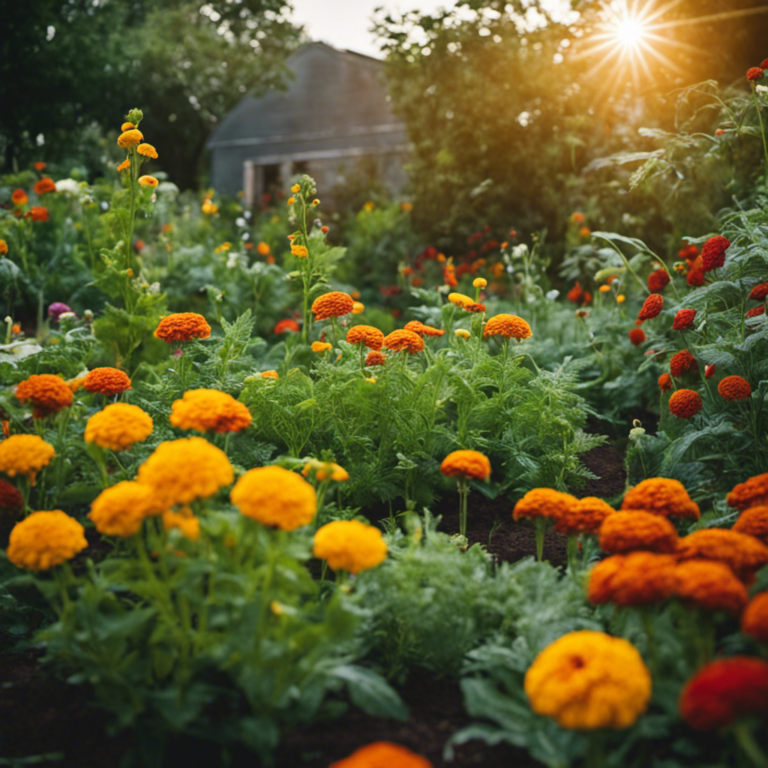Creating a pest-free herb garden naturally is easier than you might think. No need to rely on store-bought solutions or harmful chemicals. With our expert tips and tricks, you can craft your own herb garden that is free from those pesky pests.
By taking matters into your own hands, you’ll embrace a healthier and more sustainable approach. Get ready to unleash your green thumb and enjoy the benefits of a thriving, pest-free herb garden.
Say goodbye to pests and hello to a natural and eco-friendly gardening experience.
Key Takeaways
Craft Your Own Pest-Free Herb Garden Naturally
By using natural repellents, beneficial insects, homemade sprays, and companion planting techniques, you can protect your herb garden from pests without using harmful chemicals.
Did you know that practicing organic methods can increase biodiversity in your garden by up to 30%?
By implementing these strategies, not only will you have a thriving herb garden, but you’ll also contribute to the overall health of our ecosystem.
So start creating your pest-free herb garden today and enjoy the benefits of a sustainable and natural approach.
Natural Repellents for Herb Garden Pests
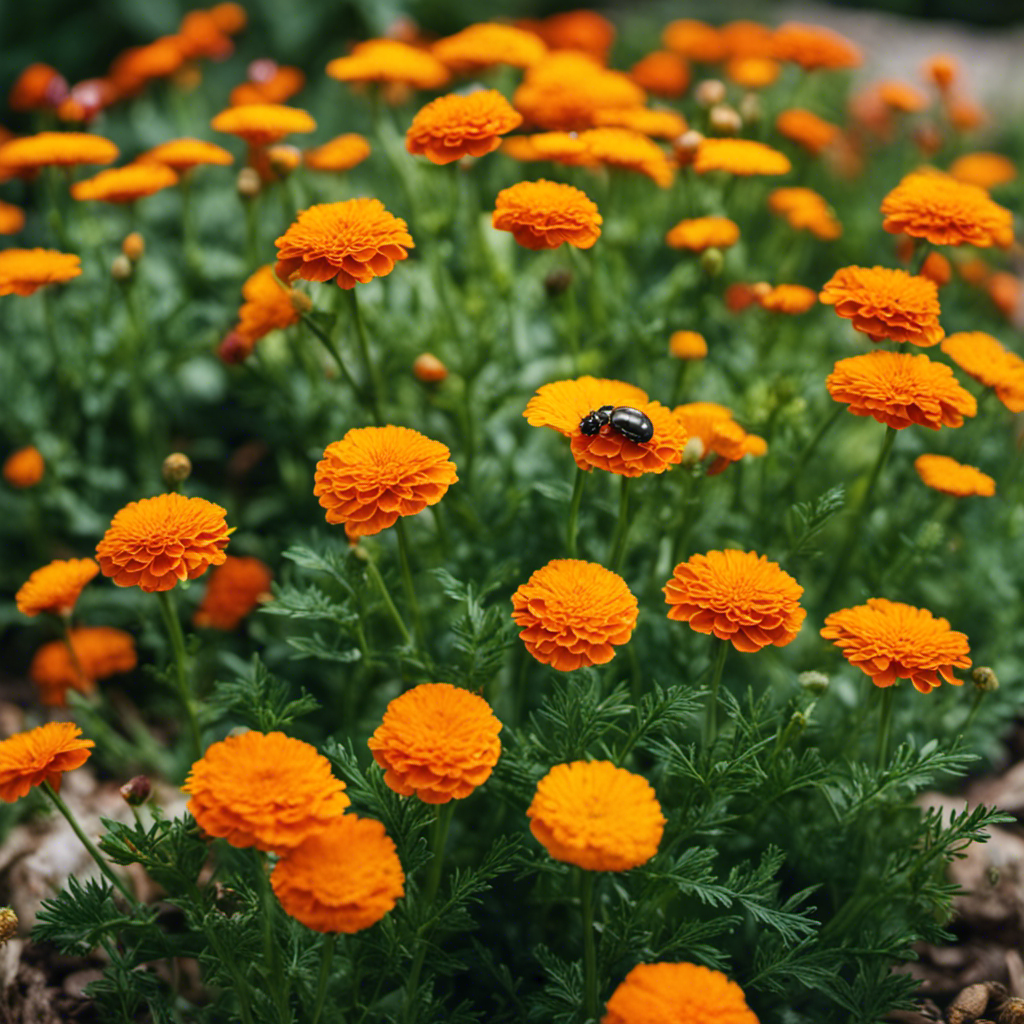
To effectively protect your herb garden from pests, it’s important to use natural repellents that are safe for both your plants and the environment.
Natural pest deterrents are a great alternative to chemical solutions as they effectively repel pests without harming your plants or polluting the environment.
Neem oil is a common and effective natural pest deterrent that repels a wide range of pests, including aphids, mites, and caterpillars.
Another effective natural repellent is garlic spray, which can deter pests like beetles, aphids, and whiteflies.
Additionally, planting marigolds and mint around your herb garden can help repel pests due to their strong aroma.
Beneficial Insects for Pest Control in Herb Gardens
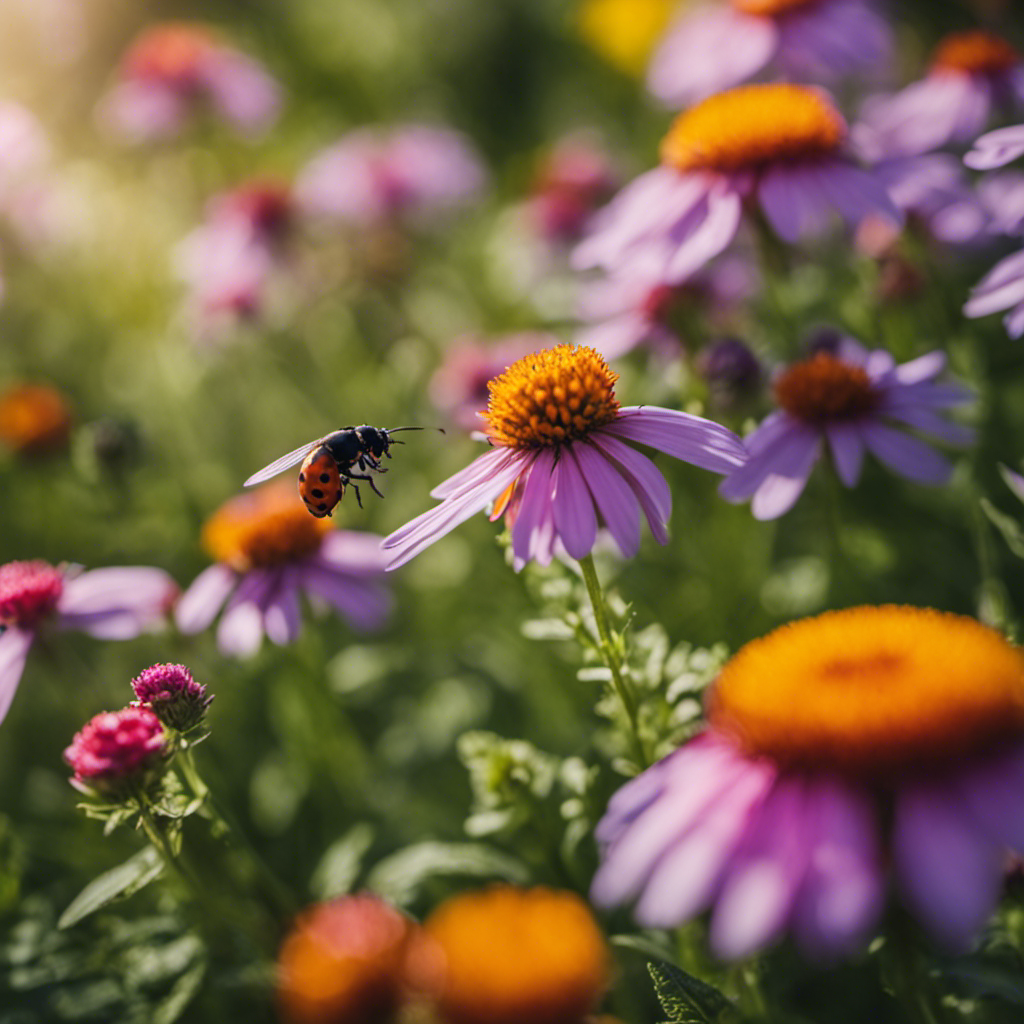
Attracting and utilizing beneficial insects is a great way to control pests in your herb garden. By providing a welcoming environment for these helpful creatures, you can reduce your reliance on harmful pesticides and ensure the health and vitality of your herbs.
Here are three beneficial insects that can assist you in effectively managing pests:
-
Ladybugs: Ladybugs aren’t only beautiful, but they also feed on aphids, mites, and other destructive pests that can harm your herbs. By attracting ladybugs to your garden, you can keep these pests in check naturally.
-
Lacewings: Lacewings are voracious predators of aphids, caterpillars, and other pests that can damage your herb garden. Additionally, they play a role in pollination, making them valuable allies in your pest control efforts.
-
Hoverflies: Hoverflies are excellent pollinators and they consume large quantities of aphids, mealybugs, and thrips. By attracting hoverflies to your garden, you can effectively control these pests while promoting the overall health and productivity of your herb plants.
Incorporating these beneficial insects into your herb garden is a natural and sustainable way to maintain a pest-free environment and support the growth of your beloved herbs.
Homemade Pest Control Sprays for Herb Plants
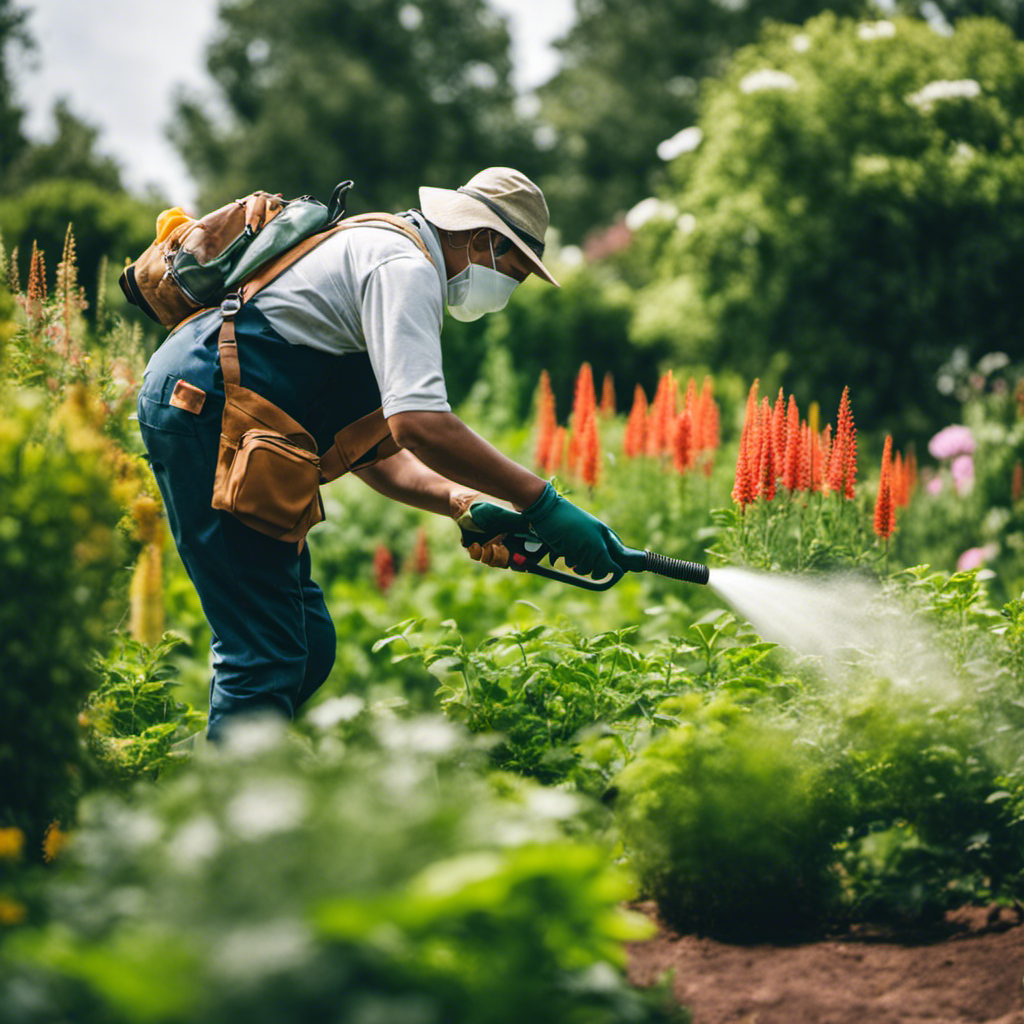
Managing pests in your herb garden can be effectively done by creating homemade pest control sprays. These DIY herbal remedies provide a natural and safe alternative to commercial insecticides. By making your own insect repellents, you can protect your herb plants from common pests without the use of harmful chemicals. Here are some simple recipes for homemade pest control sprays:
Neem Oil Spray:
Mix 1 tablespoon of neem oil, 1 teaspoon of liquid dish soap, and 1 quart of water in a spray bottle. Shake well before use and apply to herb plants, covering all surfaces. Repeat once a week or after rain.
Garlic Spray:
Blend 4 cloves of garlic with 2 cups of water. Strain the mixture into a spray bottle and add 1 teaspoon of liquid dish soap. Mix well and spray on herb plants, focusing on affected areas. Repeat every 2 weeks.
With these homemade insecticides, you can protect your herb plants from pests while maintaining a healthy and pesticide-free garden.
Companion Planting for Pest Prevention in Herb Gardens
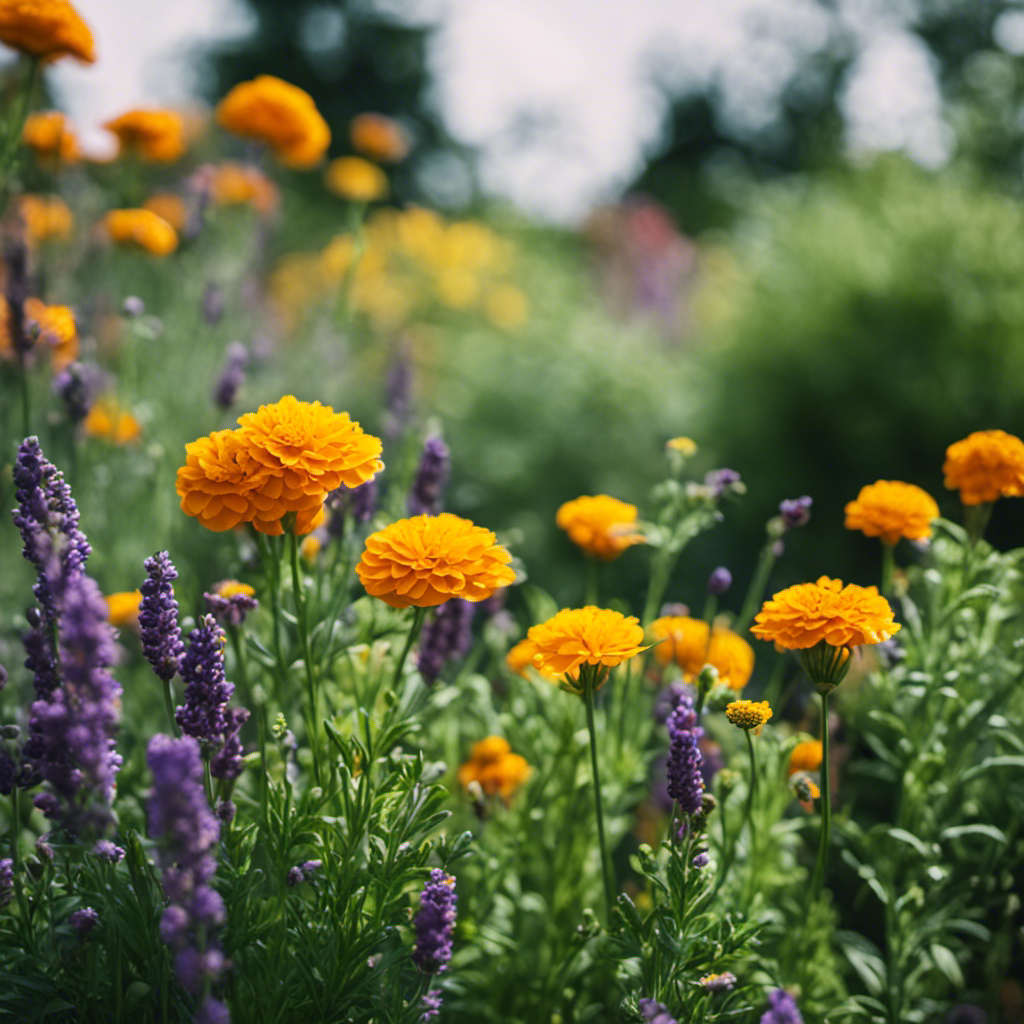
How can you naturally prevent pests in your herb garden through companion planting?
Companion planting is an effective and organic method to deter pests while promoting overall garden health. By strategically intercropping certain plants, you can create a harmonious environment that repels unwanted insects and improves soil health.
Here are three benefits of companion planting for pest prevention in herb gardens:
-
Natural pest control: Some plants have natural properties that repel pests. For example, planting marigolds alongside your herbs can deter aphids, while garlic can keep away slugs and snails. This natural pest control reduces the need for chemical interventions, making your garden safer and more eco-friendly.
-
Increased biodiversity: Intercropping different plants in your herb garden encourages biodiversity. This attracts beneficial insects like ladybugs and lacewings, which prey on common garden pests. The presence of these helpful insects can help keep pest populations under control.
-
Improved soil health: Companion planting can also improve soil health. Some plants, such as legumes like beans and peas, have the ability to fix nitrogen in the soil. This enriches the soil and provides essential nutrients for your herbs, making them less susceptible to pests and diseases.
Organic Techniques to Protect Herb Gardens From Pests
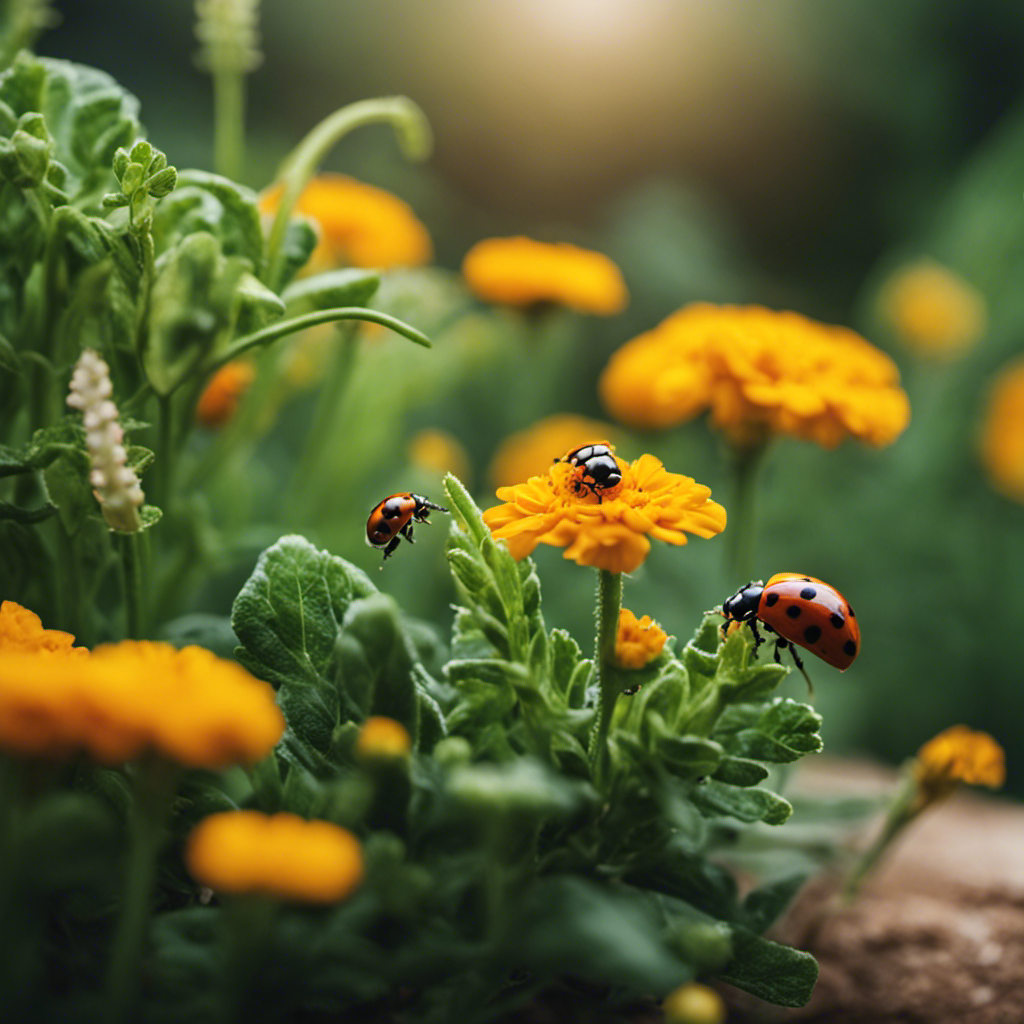
Protecting your herb garden from pests can be done organically using these effective techniques. One of the most beneficial ways to control pests in your herb garden is by using organic pest control methods. These methods are safe for both you and the environment since they’re non-toxic.
Here are some techniques you can try:
-
Companion Planting: By planting certain herbs and flowers together, you can deter pests naturally. This method helps prevent pests from damaging your plants.
-
Homemade Sprays: Creating your own pesticide sprays using ingredients like garlic, neem oil, or soap is another effective method. These sprays are non-toxic and safe to use, even on herbs that you consume.
-
Physical Barriers: Using nets, row covers, or fences can keep pests away from your herbs without resorting to chemicals. These barriers provide protection for your plants.
Conclusion
By utilizing natural repellents, beneficial insects, homemade sprays, and companion planting techniques, you can effectively protect your herb garden from pests without resorting to harmful chemicals.
Did you know that practicing organic methods can increase the biodiversity in your garden by up to 30%?
By implementing these strategies, not only will you have a thriving herb garden, but you’ll also contribute to the overall health of our ecosystem.
So start creating your pest-free herb garden today and enjoy the benefits of a sustainable and natural approach.
